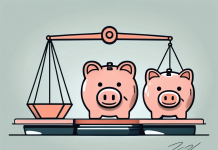Do you often find yourself reaching for a pain reliever to combat those nagging headaches? If so, you’re not alone. Headaches are a common ailment that can range from mildly irritating to completely debilitating. But fear not! In this article, we’ll explore various tips and techniques to help you understand and alleviate different types of headaches. From simple lifestyle changes to natural remedies and medical treatments, we’ve got you covered.
Understanding the Different Types of Headaches
Before we dive into the solutions, it’s essential to understand the different types of headaches. This knowledge will enable you to identify the specific triggers and tailor your approach accordingly.
Tension Headaches and Their Causes
Tension headaches are the most common type, characterized by a dull, persistent pain that feels like a tight band around your head. Stress, poor posture, and muscle tension are often the culprits behind these headaches. Taking regular breaks from prolonged sitting, practicing relaxation exercises, and improving your posture can significantly reduce the frequency and intensity of tension headaches.
Migraines: More Than Just a Headache
Migraines, on the other hand, are more than just a headache. They are often accompanied by other debilitating symptoms, such as nausea, sensitivity to light and sound, and even visual disturbances. Identifying your migraine triggers, which could be certain foods, hormonal changes, or environmental factors, can help you prevent these debilitating episodes. Keeping a headache diary and working with your healthcare professional can assist in pinpointing and managing your triggers effectively.
Cluster Headaches: A Rare but Severe Type
Cluster headaches are a rare and excruciatingly painful type of headache that primarily affects men. These headaches occur in clusters, usually for a few weeks or months at a time, followed by a period of remission. While there is no definitive cause, certain triggers like alcohol, smoking, and changes in sleep patterns have been known to bring on these intense headaches. If you experience cluster headaches, it’s advisable to consult a healthcare professional to explore potential treatment options.
Aside from tension headaches, migraines, and cluster headaches, there are several other types of headaches that individuals may experience. One such type is the sinus headache, which is often caused by sinus congestion or inflammation. These headaches typically present with pain and pressure around the eyes, cheeks, and forehead. Treating the underlying sinus issues, such as allergies or infections, can help alleviate these headaches.
Another type of headache is the rebound headache, also known as medication-overuse headache. This type of headache occurs when individuals overuse pain medications for an extended period. Ironically, the very medications used to relieve headaches can end up causing them. Breaking the cycle of medication overuse and finding alternative pain management strategies is crucial in managing rebound headaches.
Furthermore, there are hormonal headaches that predominantly affect women. These headaches are often linked to hormonal fluctuations during the menstrual cycle. The exact mechanisms behind hormonal headaches are not fully understood, but hormonal therapies, lifestyle modifications, and stress management techniques can help mitigate their impact.
Lifestyle Changes to Prevent Headaches
Now that you have a better understanding of the different types of headaches, let’s explore some lifestyle changes that can help prevent their onset.
The Role of Diet in Headache Prevention
Believe it or not, your diet plays a significant role in preventing headaches. Certain foods, like processed meats, aged cheeses, and artificial sweeteners, have been known to trigger migraines in some individuals. It’s essential to identify your food triggers and incorporate a balanced diet rich in whole grains, fruits, vegetables, and lean proteins. Additionally, staying hydrated by drinking enough water throughout the day can also help prevent headaches.
Exercise and Headaches: What’s the Connection?
Regular exercise not only improves your overall well-being but also helps prevent headaches. Physical activity releases endorphins, which act as natural painkillers and mood boosters. Engaging in activities like walking, swimming, or yoga can help alleviate stress, reduce muscle tension, and ultimately prevent tension headaches. Start with small, achievable goals, and gradually increase your activity level over time.
Stress Management Techniques for Headache Relief
Stress is often a major trigger for headaches, so it’s essential to find effective stress management techniques. Incorporate relaxation techniques into your daily routine, such as deep breathing exercises, meditation, or mindfulness. Engaging in hobbies, spending time with loved ones, and getting enough sleep are also vital components of managing stress and keeping headaches at bay.
Natural Remedies for Headache Relief
While lifestyle changes are crucial, natural remedies can also provide effective relief from headaches.
Essential Oils for Headache Relief
Essential oils like lavender, peppermint, and eucalyptus have long been used for their soothing properties. Applying a few drops to your temples, forehead, or neck can provide immediate relief from headache pain. You can also add a few drops to a warm bath or use a diffuser to enjoy the calming aroma.
Herbal Supplements and Their Effects on Headaches
Some herbal supplements, such as butterbur and feverfew, have shown promise in reducing the frequency and intensity of migraines. However, it’s important to consult with a healthcare professional before incorporating any supplements into your regimen, especially if you’re taking any medications.
The Power of Hydration in Preventing Headaches
Dehydration is a common trigger for headaches, so ensuring you’re well-hydrated can make a significant difference. Aim to drink at least eight glasses of water a day and increase your fluid intake during hot weather or intense physical activity. Remember, prevention is key, so try to stay ahead of dehydration by sipping water regularly throughout the day.
Medical Treatments for Persistent Headaches
If lifestyle changes and natural remedies aren’t providing the relief you need, it may be time to explore medical treatments.
Over-the-Counter Medications for Headache Relief
Over-the-counter pain medications, such as ibuprofen or acetaminophen, can provide temporary relief from mild to moderate headaches. However, it’s crucial to use these medications cautiously and avoid excessive or prolonged use, as it can lead to medication-overuse headaches.
Prescription Treatments for Severe Headaches
If you’re experiencing severe headaches or migraines that significantly impact your daily life, your healthcare professional may prescribe medication specifically designed to prevent or alleviate these debilitating episodes. It’s important to work closely with your healthcare provider to find the most effective solution for you.
When to Seek Medical Help for Your Headaches
While most headaches can be managed with lifestyle changes and over-the-counter treatments, certain situations may require medical attention. If you experience sudden, severe headaches, headaches associated with neurological symptoms like confusion or difficulty speaking, or if your headaches are accompanied by fever, it’s important to seek medical help promptly.
By incorporating these tips and techniques into your daily routine, you’re well on your way to effectively managing and preventing headaches. Remember, everyone is different, so it may take some trial and error to find the strategies that work best for you. Be patient, stay positive, and take control of your headaches today!




























